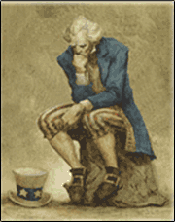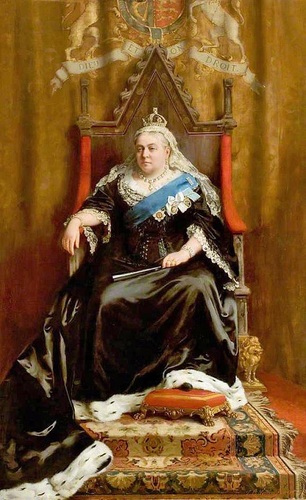
–>
July 29, 2022
One tragic wrong turn in American culture was feminists framing political activism as the only form of power, and employment as the one path to achievement. But, as feminism was insidiously inflicting its vision in our society, nobody, including feminists, foresaw how new technologies would open multidirectional pathways for communication among ordinary men and women. While 20th century “power to the people,” was actually exercised by very few, in the 21st century interactions of many millions of ordinary people have been aggregating into a force that may become an entirely new kind of power.
‘); googletag.cmd.push(function () { googletag.display(‘div-gpt-ad-1609268089992-0’); }); }
Magazines like Ms and Cosmopolitan and books like The Feminine Mystique were never accurate reflections of American women’s experience. These were marketing materials selling the supposedly greener grass on the other side of the white picket fence. Before no-fault divorce transmogrified marriage and family into disposable options, most women’s employment tended toward the episodic, short-term, and/or part-time. Not-yet or newly-married women worked for a while. Wives put husbands through higher education, or helped finance a specific family goal. Rarely was a woman sole supporter of her family. This made glamorizing career girls as icons of freedom and excitement an easy assignment for freelance writers and malcontents with anti-American political views.
The generation who read feminist bestsellers mostly didn’t leave their husbands. Instead, they pushed girl power onto their daughters. “You’re smart.” “You want to go to college.” “You want your own apartment.” “You want a career.” Older women would ask what us girls what we wanted to be when we grew up. Being married and/or a mom was dismissed as a non-answer, something “everybody” does. “What else do you want to do?” I discovered I could minimize such probing with the answer, “astronaut.” They didn’t have much advice for that goal. I didn’t realize that my experience of being pushed toward a career was part of a larger political movement. The concept was always presented to me in the context of being the family “smart girl.” I had no idea this was happening to my whole generation.
If I said anything about wanting to be married, my mother would accuse me of being “boy crazy.” I remember being 17, at a family wedding, sitting with a cousin and our mothers. When the bouquet toss was announced, my cousin and I jumped up, excited to join in. I heard my aunt say under her breath, “If she catches that bouquet, I’ll break both her legs. There’s no way I’m letting her get married.” I didn’t need to hear my mother’s response to know it was the same.
‘); googletag.cmd.push(function () { googletag.display(‘div-gpt-ad-1609270365559-0’); }); }
Feminists portray women as always having been powerless under patriarchy, while all men had power unattainable for any women. The many millions of men whose lives were limited by political and class structures were as invisible in history class as those men had been to the upper-class women of their own eras (women we were supposed to see as well-dressed prisoners).
Consider the Victorian era. For almost 64 years, earth’s most powerful monarch was a woman. The society, style, and mindset named for her is instantly recognizable long after her death. Women clearly set the standards for behavior, taste in the arts, architecture, and literature. Men’s power was focused on political, military, and commercial realms. Power over fads and fashions sounds frivolous. But  women shaping social life had indelible effects on the larger world. Individuals whose deviant tastes or behaviors became known were as good as exiled. The hand that rocked the cradle did a lot more than change diapers and wash floors. Is it any surprise this was the era when the first wave of feminism got a foothold?
women shaping social life had indelible effects on the larger world. Individuals whose deviant tastes or behaviors became known were as good as exiled. The hand that rocked the cradle did a lot more than change diapers and wash floors. Is it any surprise this was the era when the first wave of feminism got a foothold?
Two examples of women’s influence on American politics are the constitutional amendments creating Prohibition and women’s right to vote. If a patriarchy had kept women down for thousands of years, why suddenly allow women to vote? Why would patriarchy enact a law much more popular with women than with men?
While so many women have taken up education and careers, much that housewives once contributed to communities has been fading away. Neighborhood beautification, volunteering at schools, running scout troops, even taking the kids and their friends to the park, require time, effort and esprit de corps. In the world of lifelong work, serial monogamy, and midlife dating, other women aren’t comrades. They’re competitors.
When parents aren’t a unit, they are competitors too: Disneyland Dad vs. Mommy Bestie. Mothers almost always get custody, and it’s frighteningly easy to claim “abuse” to obtain advantage in family court. With mothers getting the the kids for majority (65%) of days per year, a lot of kids miss out on fathers’ discipline and their walk-it-off attitude about minor scrapes. The momma-bear instinct to eliminate even the remotest danger has full control, without its natural counterpoint.
Negative feminist influences extended further than anyone in the 20th century imagined they would, all the way to men competing in women’s sports. But that century was also saw the birth of technology that is now offering opportunities for reversing the feminist agenda. We now enjoy real-time communication beyond even two-way and shared among people who might never meet. Extensive archives of writings and videos by anyone choosing to post them. Social and intellectual trends are instantly accessible and shared. The kind of big picture of social currents that once were pieced together, imperfectly and in retrospect, is possible to apprehend in an astonishingly short time. Even with social media platforms promoting favored creators and messages, the opportunities for an egalitarian multiplicity of communication pathways is available to, well, anybody.
‘); googletag.cmd.push(function () { googletag.display(‘div-gpt-ad-1609268078422-0’); }); } if (publir_show_ads) { document.write(“
In internet lingo, “drama” often denotes real-life conflict more than it does fiction. With beginnings on reality TV, and now on multiple social media platforms, anyone can witness to the ugly clashes among exes, baby mamas/daddies, boyfriends/girlfriends, dates, kids, roommates and spouses that alternative lifestyles make possible. Platforms like YouTube prioritize “influencers” and there’s plenty of content featuring alternative lifestyles, unmarried adulthood, polyamory, sugar babies and nonhuman identities. But ordinary individuals interacting with each other is a huge proportion of traffic. In 2020, “beginner” channels amassed nine billion views talking about all sorts of interests, with plenty of cultural and political commentary.
Both men and women post warnings against thinking a good mate will turn up on dating apps. Plenty of middle-aged women bitterly complain there’s no good men. Others warn young women the biological clock is real. Young men decry expectations of extravagant entertainment (such as a “foodie call” — a riff on “booty call.”). Heartbroken older men describe divorce courts turning lifetime assets into “cash and prizes” for suddenly restless wives.
Unlike the Brave New World vision where propaganda and grooming went in a downward direction, the internet offers billions of opportunities to ordinary individuals seeking and sharing observations and strategies.
Another hopeful trend comes from the days of my grandmothers. The WWII generation had a massive female workforce — the very employment situation that feminists have been pushing for nearly a century. Women were doing every kind of work from office jobs to the heaviest of heavy industry. But once the war was over, and the men came home, these competent working women rushed to the suburbs and initiated the baby boom. This is history people might enjoy seeing repeated.
Image: Thomas Benjamin
<!– if(page_width_onload <= 479) { document.write("
“); googletag.cmd.push(function() { googletag.display(‘div-gpt-ad-1345489840937-4’); }); } –> If you experience technical problems, please write to [email protected]
FOLLOW US ON
<!–
–>
<!– _qoptions={ qacct:”p-9bKF-NgTuSFM6″ }; ![]() –> <!—-> <!– var addthis_share = { email_template: “new_template” } –>
–> <!—-> <!– var addthis_share = { email_template: “new_template” } –>







